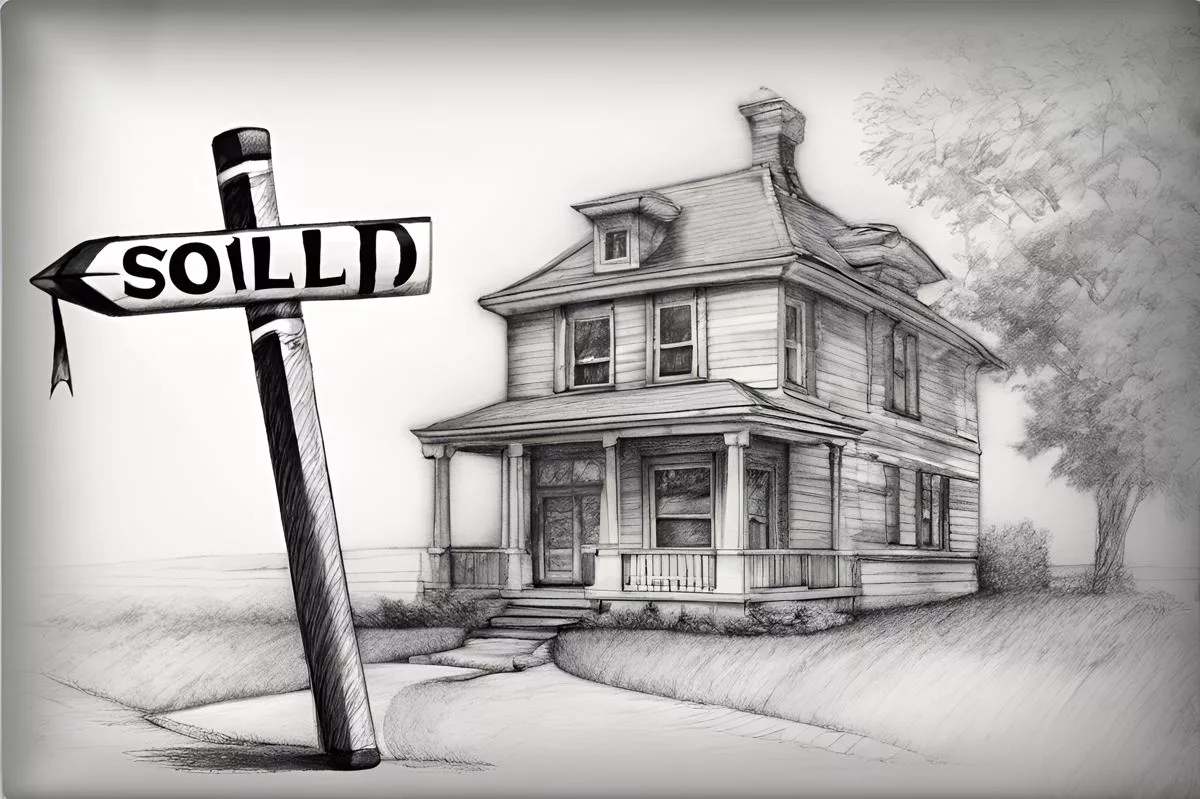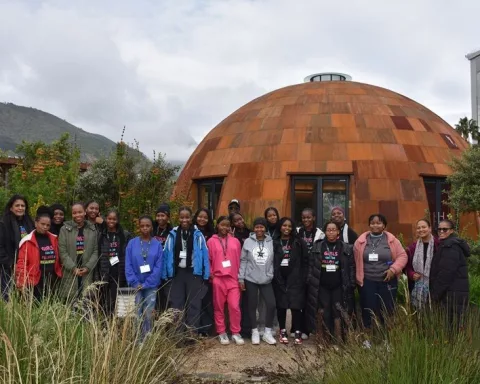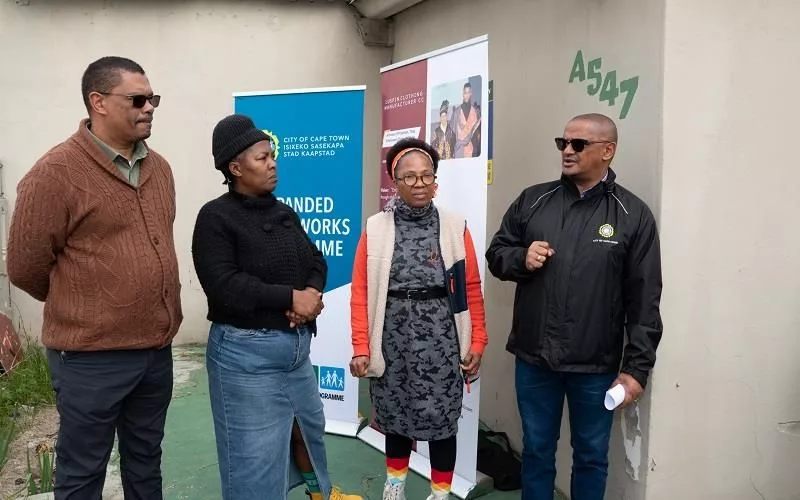South Africa’s housing crisis requires a detailed plan of action, as announced on August 26, 2024 by the Portfolio Committee on Human Settlements. The plan includes legislative changes for fair housing, amplified communication and collaboration, and empowering women to become property owners. The aim is to confront the challenges specific to the gap market and promote equal access to housing finance, leading to a more equitable South Africa. The successful implementation of this plan will mitigate issues of housing unaffordability and promote spatial transformation for the “missing middle”.
Tackling South Africa’s housing crisis requires a detailed plan of action which includes legislative changes for fair housing, amplified communication and collaboration, and empowering women. The plan aims to confront the challenges specific to the gap market and promote equal access to housing finance. The successful execution of the department’s interventions will further augment the number of women becoming property owners and lead to a more equitable South Africa.
The Challenge at Hand
The urgent issues of housing unaffordability and spatial transformation are high on the agenda for the Portfolio Committee on Human Settlements of South Africa’s 6th Parliament. Announced on 26th August 2024, an extensive strategy has been outlined with the aim of confronting the challenges specific to the gap market. This term refers to the individuals who fall into the category where they do not meet the criteria for either mortgage finance or fully subsidized housing.
Nocks Seabi, the Chairperson of the Portfolio Committee, underscores the significance of this strategic approach. He suggests that the heart of the issue lies within the ineffective execution of policy directives and an imbalanced economic environment within the country. It is anticipated that the successful implementation of this plan will mitigate these issues, particularly for the “missing middle”. This should lead to a new era of housing that is more readily accessible.
Implementing Legislative Changes for Fair Housing
A crucial part of this transformative action involves the pressing need to finalize the Home Loan and Mortgage Disclosure Amendment Bill. This legislation is designed to correct discriminatory lending practices and promote equal access to housing finance. This issue is clearly illustrated by the statistics: the approval rate for applicants from previously advantaged backgrounds currently stands at 53%, compared to a 49% approval rate for applicants from historically disadvantaged backgrounds. Seabi points out that this disparity in lending practices only serves to perpetuate spatial disparities and impede access to housing for the majority of South Africans.
In response to this, Seabi supports the strengthening of the Office of Disclosure’s mandate within the Department of Human Settlements. His proposal is built on legislative and other interventions strategically designed to enhance and facilitate the more effective delivery of its mandate.
Amplifying Communication and Collaboration
Recognizing the power of communication as a driver for change, the Chairperson is also advocating for amplified efforts to publicize housing initiatives. Programs like the First Home Finance and Rapid Land Release form integral parts of the committee’s strategy. The hope is that by raising awareness of these initiatives, they can spur a greater uptake. This is particularly important for the rural First Home Finance housing initiatives, which necessitate more effective communication to elucidate the implementation, prerequisites, and availability of the scheme.
Collaboration is also a key aspect of Seabi’s proposal. He maintains that employers hold a significant role in tackling the housing deficit by partnering with the Department of Human Settlements. A prime example of this is the strategic alliance between the National Housing Finance Corporation and corporations such as Cashbuild and Capitec for the Zakhelikhaya initiative. Seabi contends that strengthening these kinds of partnerships could be pivotal in ensuring access to housing for the gap market.
Empowering Women and Future Plans
In the context of wider social transformation, the Chairperson received the report that more women had applied for housing initiatives than men – 1.3 million women in comparison to 1.1 million men – with a sense of optimism. He contends that such shifts will empower more women to become property owners. The expectation is that the successful execution of the department’s interventions will further augment these numbers.
In the future, the committee intends to arrange regular briefings between the committee and the department. The objective of these briefings is to keep track of the progress of these plans, ensuring that the commitment to alleviating housing unaffordability and advocating spatial transformation remains strong. This mission is not just a practical necessity but also a matter of social justice – an essential step towards a more equitable South Africa.
1. What is South Africa’s housing crisis and why is it urgent?
South Africa’s housing crisis is characterized by housing unaffordability and spatial disparities, particularly for the “missing middle” who do not qualify for mortgage finance or fully subsidized housing. It is urgent because it perpetuates social and economic inequality within the country.
2. What is the plan of action to address South Africa’s housing crisis?
The plan of action includes legislative changes for fair housing, amplified communication and collaboration, and empowering women to become property owners. The aim is to confront the challenges specific to the gap market and promote equal access to housing finance, leading to a more equitable South Africa.
3. What legislative changes are being proposed to promote fair housing?
The Home Loan and Mortgage Disclosure Amendment Bill is being finalized to correct discriminatory lending practices and promote equal access to housing finance. The Office of Disclosure’s mandate within the Department of Human Settlements will also be strengthened to enhance and facilitate the more effective delivery of its mandate.
4. How will communication and collaboration be amplified to address South Africa’s housing crisis?
Housing initiatives, such as the First Home Finance and Rapid Land Release, will be publicized to increase awareness and uptake. Employers will also be encouraged to partner with the Department of Human Settlements to tackle the housing deficit. Collaboration between corporations and the National Housing Finance Corporation, as seen in the Zakhelikhaya initiative, will be strengthened.
5. How will empowering women help to address South Africa’s housing crisis?
More women have applied for housing initiatives than men, and this trend is expected to continue. The successful execution of the department’s interventions will further augment the number of women becoming property owners, promoting social and economic empowerment.
6. What are the future plans for addressing South Africa’s housing crisis?
Regular briefings between the committee and the department will be arranged to monitor the progress of the plan of action. This is essential to ensure the commitment to alleviating housing unaffordability and advocating spatial transformation remains strong, leading to a more equitable South Africa.












